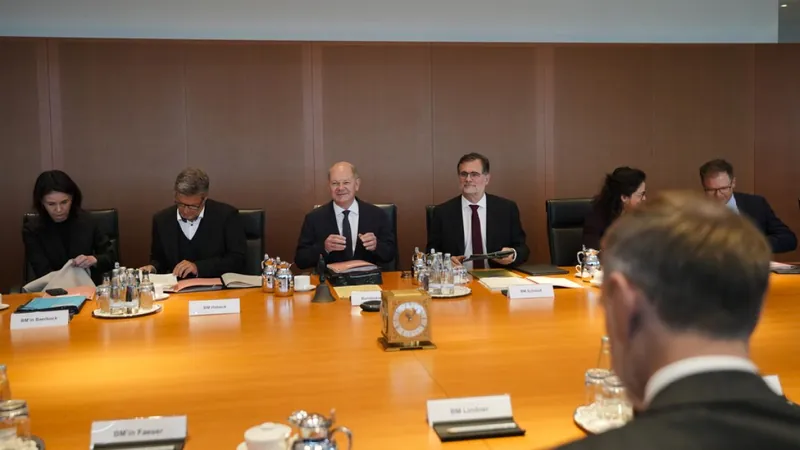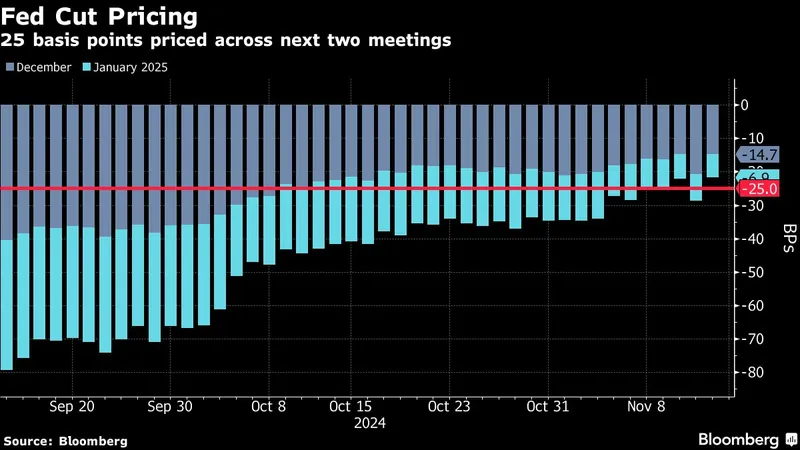
Shocking Breakup: Chancellor Scholz Dismisses Finance Minister Lindner, Setting Stage for New Elections
2024-11-06
Author: Jessica Wong
Shocking Breakup
In a stunning turn of events, the ruling coalition government of Germany has officially collapsed as Chancellor Olaf Scholz of the Social Democrats (SPD) announced the firing of Finance Minister Christian Lindner from the Liberal Democrats (FDP). This abrupt decision marks a pivotal moment in German politics, leaving the future of the coalition, often referred to as the "traffic light coalition" (comprising SPD, FDP, and the Greens), hanging by a thread.
Critical Meeting and Dismissal
The coalition leaders convened at the chancellery in Berlin for what was reported to be a critical meeting. Just an hour after news of Lindner's dismissal broke, Scholz addressed the media, openly criticizing his now-former finance minister. "Lindner has broken my trust too many times," Scholz stated emphatically, underscoring that there is "no more basis of trust for further cooperation." He alleged that Lindner prioritized his party's interests over the coalition's collective responsibility, highlighting tensions that had been simmering within the government for some time.
Economic Strains and Political Tensions
The rift became apparent as discussions regarding budget strains for 2025 and a stagnating German economy intensified. Lawmakers anticipated unifying their efforts in the wake of Donald Trump’s potential return to the US presidency, hoping it would prompt a greater focus on critical geopolitical challenges. However, those aspirations quickly disintegrated, leading to discord among coalition partners.
Response from Lindner and Political Analysts
In his response, Lindner accused Scholz of orchestrating a "calculated break-up of the coalition," declaring that his proposals to rejuvenate the economy were seemingly dismissed by his coalition partners. Political analysts have been closely observing these developments, with Thu Nguyen, Deputy Director of the Jacques Delors Centre think tank in Berlin, noting the implications of the ongoing friction within the government.
No-Confidence Vote and Future Elections
As tensions rise, Scholz has confirmed plans for a no-confidence vote in the Bundestag on January 15, setting the stage for potential parliamentary elections by the end of March at the latest. Robert Habeck, the Green Party's economy and green transition minister, expressed disappointment, stating that the outcome should not have escalated to such a crisis. He reflected on the necessity for coalition stability and pledged that the Greens would continue fulfilling governmental duties until elections can be organized.
Conclusion
As the political landscape of Germany shifts dramatically, citizens and analysts alike are left wondering: what does this mean for the future of governance in Germany, and how will the electorate respond in the next elections? Stay tuned for what could be a tumultuous political ride ahead!




 Brasil (PT)
Brasil (PT)
 Canada (EN)
Canada (EN)
 Chile (ES)
Chile (ES)
 España (ES)
España (ES)
 France (FR)
France (FR)
 Hong Kong (EN)
Hong Kong (EN)
 Italia (IT)
Italia (IT)
 日本 (JA)
日本 (JA)
 Magyarország (HU)
Magyarország (HU)
 Norge (NO)
Norge (NO)
 Polska (PL)
Polska (PL)
 Schweiz (DE)
Schweiz (DE)
 Singapore (EN)
Singapore (EN)
 Sverige (SV)
Sverige (SV)
 Suomi (FI)
Suomi (FI)
 Türkiye (TR)
Türkiye (TR)